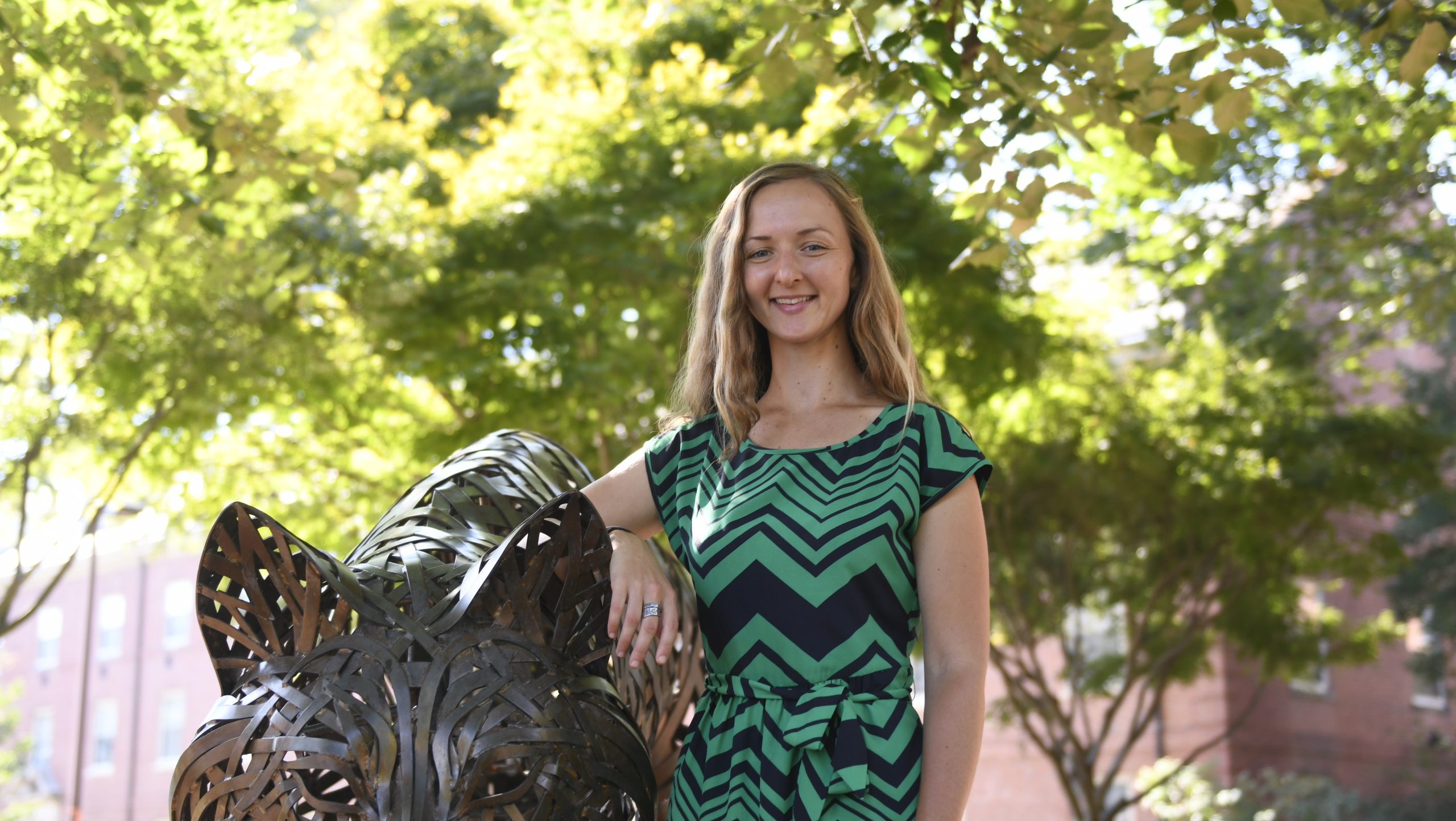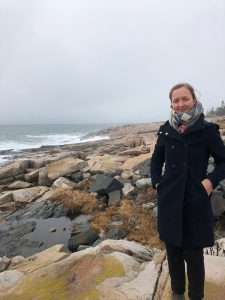Researcher Spotlight – Courtney Hotchkiss

2021-22 Global Change Fellow
PhD student, Department of Parks, Recreation & Tourism Management
Advisor: Dr. Erin Seekamp
Every year the Southeast Climate Adaptation Science Center funds a multi-disciplinary cohort of Global Change Fellows representing colleges across NC State University. The current cohort of students represents the decadal anniversary of this program! Here are some highlights about 2021-22 Fellow, Courtney Hotchkiss and the applied research she’s conducting.
About You
What do you study?
My background is in heritage studies and the management of protected areas. My current research focuses on climate change adaptation planning for archaeological sites, and our team is working with the National Park Service and associated Tribal Nations to develop a tool that can help with consultation and engagement of archaeological sites/traditional use areas within a Park’s boundaries.
What (or who) influenced you to go into this field of study?
My interest in heritage site management grew from my love of traveling and interest in the relationship between humans and the environment. Heritage ‘experts’ typically decide what is significant and worth saving, which often excludes local and traditional knowledge, values, and perspectives. Without stakeholder input and meaningful collaboration, overdevelopment and climate change impacts will displace vulnerable communities, cause irreversible damage to important built and natural environments, and ignore people’s connection to place.
What is your dream job?
My goal is to continue working with stakeholder groups in heritage site planning and to create avenues for incorporating local and traditional knowledge into decision-making, giving more authority to local and traditional stewards of places that are most meaningful to them. I plan to continue working with local and traditional stakeholders, and I hope to become a social scientist for a public land agency someday.
About Your Research

What results are you finding?
I love talking to people, as an individual and as a researcher. The more formal and informal interviews I conduct, the more I learn about climate change impacts, different perspectives of theory and practice, and holes in the way resource management is practiced. One of the most important aspects of my research is conceptually and practically putting culture and nature back together, encouraging land agencies to more holistically manage the built and natural environment.
How can your research be used to inform management decisions?
The research team I’m a part of is creating a tool to help the National Park Service and citizens and staff of Tribal Nations to share information and communicate better. We are focused on giving recommendations for conversations about NPS site data and Tribal Nation values of archaeological sites that are facing climate change impacts. Some of the results so far show that the incorporation of local and traditional knowledge is not showing up in the literature or implemented at a park-level, despite national and international favor of integrating knowledge systems.
Who will benefit from your research?
There are many barriers to incorporating different worldviews, values, and ways of doing science into federal compliance, such as the terminology we use to talk about heritage sites, the understaffing in cultural resource positions, and the relationship building and trust that needs to occur for work to be collaborative. My aim is to work to foster the co-creation of knowledge and science so that NPS can live up to its mandate and Tribal Nations can have more access and decision-making power over the stewardship of their ancestral homelands.
About Your Global Change Fellow Experience
How do you expect the SE CASC Global Change Fellows Program to impact you and your work?
The Global Change Fellows program has been such a wonderful experience! From the amazing speakers invited to present at our seminars, to inviting others to speak at the student-led public seminars, to the one week field intensive, I am continuously learning about research and projects happening around the country to increase our knowledge of climate science and communication.
What has been the most rewarding part of being a Global Change Fellow?
I have a much larger network of academics and professionals for my work that is related to decision-making for adaptation planning, as well as others I can reach out to for different methods, approaches, and tools. Another rewarding aspect has been the opportunity to learn from the other students in the cohort, spanning a variety of disciplines, specialities, and experiences.
What advice would you give to an incoming Global Change Fellow to get the most out of their experience?
Advice I would give to incoming students is to follow up with presenters whose work you’re interested in; everyone I reached out to responded back enthusiastically and was excited to share resources and provide guidance for further research and job opportunities. I am very lucky and honored to be a part of the Global Change Fellows program!
